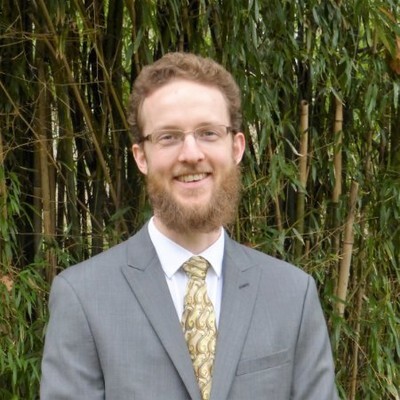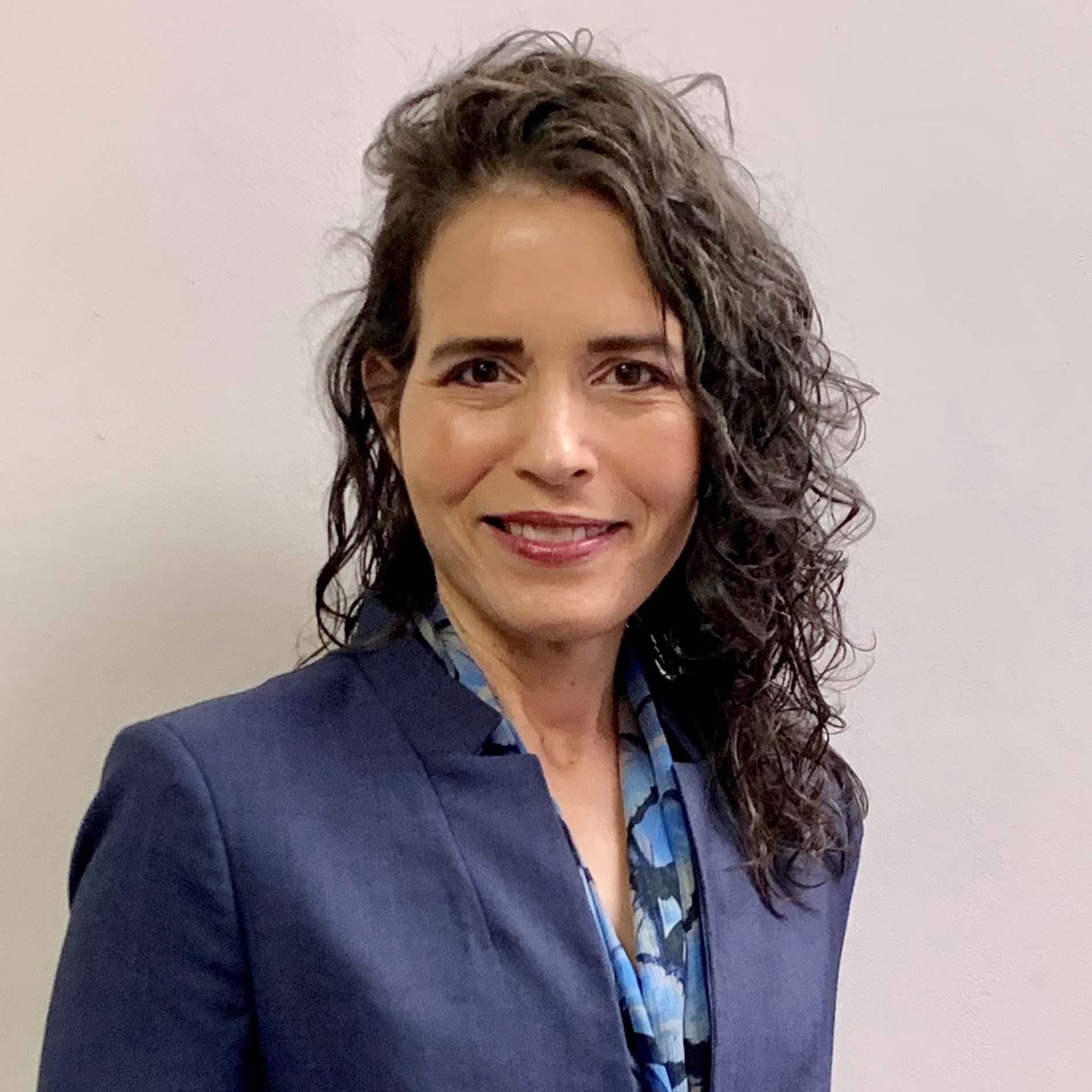2024 Workshop for Early Career Investigators in HIV
Wednesday, April 24, 2024
11 a.m.–4 p.m. ET
Virtual Zoom Event
The 2024 Workshop for Early Career Investigators in HIV, hosted by the NIH Office of AIDS Research (OAR), will provide early stage investigators (ESIs), early career investigator (ECIs), and undergraduate and graduate students with information about OAR and HIV research at NIH, as well as NIH resources that are available to support ECIs. Workshop attendees also will have an opportunity for networking and will learn about HIV funding opportunities at NIH and the NIH grant application process. See speaker biographies below, or view the meeting agenda.
Return to the 2024 workshop event webpage, find additional resources for ECIs from OAR, or learn about the 2023 workshop.
Speaker Biographies
Opening Remarks
CAPT Mary Glenshaw, Ph.D., M.P.H., NIH Office of AIDS Research

CAPT Mary Glenshaw, Ph.D., M.P.H., provides scientific leadership, program oversight, and policy development as the Acting Deputy Director of the NIH Office of AIDS Research (OAR). In this role, she helps coordinate the NIH HIV research budget of $3.29 billion for fiscal year 2024 and the development of the NIH Strategic Plan for HIV and HIV-Related Research, and serves as the Executive Secretary / Designated Federal Official of the Office of AIDS Research Advisory Committee (OARAC). Dr. Glenshaw brings global health and epidemiology expertise to the field from prior experience with the Centers for Disease Control and Prevention (CDC), where she served the President’s Emergency Plan for AIDS Relief (PEPFAR) in various capacities in southern Africa for 13 years.
Felecia Bush, NIH Office of AIDS Research

Felecia Bush is a Supervisory Budget Analyst, managing the formulation, execution, and presentation of the NIH HIV portfolio of $3.29 billion in fiscal year 2024. Mrs. Bush first joined the NIH Office of AIDS Research (OAR) as a Budget Analyst in 1998, becoming the Lead Budget Analyst in 2020. Before joining OAR, Mrs. Bush was in the NIH Office of Budget. She served as a Budget Analyst and a clerk typist for the National Center for Research Resources, originally starting her government service in 1974. She received her Bachelor of Science degree in business administration from the University of Maryland in 1985.
Mentor and ECI Talks
Sannisha Dale, Ph.D., University of Miami
Sannisha Dale, Ph.D., is an Associate Professor with tenure in psychology, with a secondary appointment in public health sciences at the University of Miami. She is also a licensed clinical psychologist and founder and Director of the SHINE (Strengthening Health through INnovation and Engagement) Research Program. Her primary research interests are: (a) enhancing understanding of the relationships between resilience, trauma, and health outcomes among individuals with HIV and those placed at risk for HIV; (b) investigating psychosocial and structural factors that relate to HIV health inequities; (c) developing effective prevention, intervention, and implementation strategies to promote resilience and good health outcomes amongst survivors of trauma and individuals with or placed at risk for HIV, especially individuals minoritized due to interlocking systems of oppression, and who are heavily burdened by the HIV epidemic; and (d) engaging community members and stakeholders in research. She has been a principal investigator of 14 grants in the area of HIV treatment and prevention. In addition, she is the Director of the Mental Health Disparities and Community Engagement Core for a P30 grant (Center for HIV and Research in Mental Health [CHARM]) where she established and provides guidance to the Community Advisory Board. Dr. Dale values community engagement and views strong community partners as the bedrock to conducting impactful HIV health equity research. Her efforts in engaging community members have been recognized by two awards (Rhoda Johnson-Tuckett Award for Commitment to Community-Engaged Research and a Community Hero Award) and several certificates/plaques of appreciation from community partners (e.g., Florida Department of Health). In addition to her noted research projects, she has given over 150 presentations of her work domestically and internationally, authored over 70 publications, received four early career researcher awards, and serves as an associate editor, consulting editor, and reviewer across several peer-reviewed journals.
Jennifer Jao, M.D., M.P.H., Lurie Children’s Hospital and Northwestern University

Jennifer Jao, M.D., M.P.H., is a Professor at the Northwestern University Feinberg School of Medicine in the Departments of Pediatric and Adult Infectious Diseases. Her research focuses on HIV maternal-child health. She obtained her M.D. at the Medical College of Georgia and completed an internal medicine/pediatrics residency at Rush University Medical Center. She trained in infectious diseases and obtained her M.P.H. at the Icahn School of Medicine at Mount Sinai in New York. Dr. Jao has led cohorts of pregnant women living with HIV and their children both in the United States and Africa. As a translational researcher, her research portfolio targets the metabolic complications of HIV and its treatment in pregnant individuals living with HIV and their children. She is the principal investigator on multiple National Institutes of Health-funded studies in the United States and Africa to better understand the long-term health outcomes and chronic comorbidities associated with HIV in adults and children. Dr. Jao’s clinical practices focuses on providing HIV care and treatment to pregnant individuals, adults, infants, children, and adolescents both living with and exposed to HIV.
John Sauceda, Ph.D., University of California, San Francisco

John Sauceda, Ph.D., is an Associate Professor in Residence and a health psychologist in the Division of Prevention Science in the Department of Medicine at the University of California, San Francisco (UCSF). He co-directs three NIH-supported mentoring programs for postdoctoral fellows and early career faculty, graduate students, and undergraduate students and the Developmental Core at the NIMH-funded Center for AIDS Prevention Studies (CAPS). He has two lines of research that blend principles and methods from health, clinical, and quantitative psychology. The primary line of research aims to understand and intervene on factors to address health disparities among Latino/a/x populations and other marginalized communities impacted by HIV. His second line of research aims to conduct social and behavioral science research to help address some unresolved challenges in HIV cure research.
Edda I. Santiago-Rodríguez, Dr.P.H., University of Puerto Rico School of Public Health

Edda I. Santiago-Rodríguez, Dr.P.H., is a public health practitioner, social-community psychologist, and faculty at the University of Puerto Rico (UPR), Medical Sciences Campus, School of Public Health. Over the past decade, her research has centered on HIV-related projects, examining issues such as structural barriers to access services, intersectional stigma, housing instability, and psychosocial factors impacting sexual minority men, transgender women, and Latino individuals living with HIV. She leads or co-leads several implementation science studies, funded by the National Institutes of Health and Centers for Disease Control and Prevention, to understand and explain how and why HIV prevention and treatment strategies for Latino populations in the United States and Puerto Rico succeed or fail. She currently co-directs a dynamic research team known as el TEAM Network at UPR, with over 15 years of experience in conducting community-based participatory research. Her long-term research plan is to focus on understanding and eliminating the inequities that influence the health of frequently marginalized populations, specifically Latino sexual and gender minorities in the United States and Puerto Rico.
Megan McHenry, M.D., M.S., Indiana University School of Medicine

Megan S. McHenry, M.D., M.S., FAAP, is a pediatrician and an Associate Professor of Pediatrics in the Ryan White Center for Pediatric Infectious Disease and Global Health at Indiana University School of Medicine. Her research program is based within the Academic Model for Providing Access to Healthcare (AMPATH) Research Network in Kenya and focuses on early childhood development in children living in resource-limited settings. She has expertise in the measurement of neurodevelopment across cultures, as well as the many factors impacting neurodevelopment globally, including HIV. In 2018, she was awarded an NIH National Institute of Mental Health (NIMH) K23 mentored career development award focused on incorporating neurodevelopmental screening into the maternal-child health clinics. In 2021, she was awarded her first R01 study from the NIH Eunice Kennedy Shriver National Institute of Child Health and Human Development, looking at factors associated with neurodevelopment in children born to mothers living with HIV, as well as an NIMH R21 to examine neurophysiology and neurocognition in adolescents living with HIV. She recently received a supplemental award from NIH to understand the ethical considerations of involving pregnant women living with HIV and their children in research. She currently serves as Vice Chair of the Brain and Mental Health Committee within the International Maternal Pediatric Adolescent AIDS Clinical Trials (IMPAACT) Network
In addition to her own research program, Dr. McHenry serves as her department's Director of Global Health Education and has led the development of curriculum focused on equitable partnerships in global health at Indiana University School of Medicine. Her expertise in global early childhood development has led to her role on the American Academy of Pediatrics Global Early Childhood Development Project Advisory committee. Dr. McHenry also co-directs the Morris Green Physician-Scientist Development Program, where she mentors pediatric residents and fellows interested in developing careers in research.
Jerel (Adam) Fields, Ph.D., University of California, San Diego
Jerel (Adam) Fields, Ph.D., conducts research focused on understanding and developing therapies for neurodegenerative diseases. He is particularly interested in how alterations in mitochondrial function and chronic inflammation interact in the neurodegenerative process. His work includes examining post-mortem brain specimens from humans and animal models to identify neuropathological signatures associated with disease. His team uses in vitro models to dissect neuropathogenic mechanisms and test therapeutic strategies in neurons, astrocytes, and microglia. Ultimately, the goal of his research is to identify therapeutic targets and treatments that will improve clinical outcomes for people suffering from neurological disorders.
Office of AIDS Research Resources and Data Hub
Elisabet Caler, Ph.D., NIH Office of AIDS Research

Elisabet (Lis) Caler, Ph.D., joined the NIH Office of AIDS Research (OAR) as a health scientist administrator in September 2019. Currently, she is a Lead Senior Scientific Advisor of the OAR Science Team. Before joining OAR, Dr. Caler served as a Program Director in the NIH National Heart, Lung, and Blood Institute, Division of Lung Diseases, where led the Lung Response to Pulmonary Infections, Microbiome, AIDS and Tuberculosis area, focusing on cellular and molecular lung responses to HIV, tuberculosis (TB), and non-TB mycobacterial infection, as well as other and viral, bacterial, and fungal pathogens that cause pneumonia. Currently, Dr. Caler leads the Basic and Translational Science Workstream within the OAR Science Team, overseeing cross-cutting areas of research, including vaccine development; microbicides and multipurpose technologies; HIV-associated comorbidities, coinfections, and complications; and research toward HIV cure. She leads the OAR Early Career Investigators in HIV Initiative. This workshop is part of the initiative.
Danny Murphy, M.P.H., NIH Office of AIDS Research

Danny Murphy, M.P.H., is a Health Research Evaluator on the Analytics and Evaluation Team in the NIH Office of AIDS Research. His focus is on data analytics, data visualization, data quality and management, data processing pipelines, and analytics and evaluation capacity-building. Mr. Murphy joined OAR as a Public Health Analyst in 2020. Prior to joining NIH, Mr. Murphy worked as Data Manager and Analyst at the Peace Corps Office of Health Services Epidemiology and Surveillance Unit, Program Assistant at the Peace Corps Office of Overseas Programming and Training Support, Health Project Specialist and HIV/AIDS Coordinator at the Peace Corps Nicaragua, and as a Community Health Educator/Peace Corps Volunteer in Nicaragua and Togo. Mr. Murphy earned his M.P.H. with a focus on global health program design, monitoring and evaluation from George Washington University and a B.A. in cognitive science from the University of Virginia.
HIV Program Coordinators and Program Officers
Emmanuel Mongodin, Ph.D., NIH National Heart, Lung, and Blood Institute

Emmanuel Mongodin, Ph.D., Mongodin joined the NIH National Heart, Lung, and Blood Institute (NHLBI) in 2020 as a Program Director in the Division of Lung Diseases. His primary interests include lung responses to pulmonary infections, effects of the microbiome on the host immune response, and HIV. Dr. Mongodin earned his Ph.D. in 2000 from the University of Reims Champagne-Ardenne in France, where he studied the mechanisms of adherence of Staphylococcus aureus in the airway epithelium. After completing his Ph.D., Dr. Mongodin completed his postdoctoral training initially at Virginia Commonwealth University, then at The Institute for Genomic Research and the J. Craig Venter Institute. Dr. Mongodin was later recruited to the Institute for Genome Sciences at the University of Maryland School of Medicine in 2007. Initially trained as a physiologist studying host-bacteria interactions, Dr. Mongodin has since become an expert in large-scale next-generation genomic, comparative genomic and metagenomic strategies to further our understanding of host-pathogen interactions in the context of entire microbiome systems. Dr. Mongodin has co-authored over 120 peer-reviewed publications and served on the editorial board and as reviewer of multiple scientific journals.
Roya Kalantari, Ph.D., NIH National Heart, Lung, and Blood Institute

Roya Kalantari, Ph.D., is a Program Officer in the Division of Lung Diseases at the NIH National Heart, Lung, and Blood Institute (NHLBI). She received her B.S. in biochemistry from the Georgia Institute of Technology and her Ph.D. in cell and molecular biology from UT Southwestern Medical Center. Her research focused on the study of microRNA functions in the mammalian cell nucleus. After earning her Ph.D., Dr. Kalantari became a Presidential Management Fellow, where she worked in multiple offices and institutes across the National Institutes of Health in roles related to program evaluation and science communication. After completing her fellowship, she became a Program Officer at NHLBI, where she manages a portfolio of training and career development grants related to critical care, acute lung injury, and lung transplant.
Yu (Woody) Lin, M.D., Ph.D., NIH National Institute on Drug Abuse

Yu (Woody) Lin, M.D., Ph.D., oversees training/mentoring and the neuroscience research program at the NIH National Institute on Drug Abuse (NIDA). He is member of the NIDA research training committee and K99/R00 program committee since 2007. The training program portfolio includes all fellowship and mentored K mechanisms, as well as institutional T32 awards. The neuroscience program emphasizes clinical and translational research in the areas of pain and HIV. His portfolio also encompasses endogenous homeostatic mechanisms and neuroplasticity in the brains of patients with chronic pain, HIV, or prescription opiate use/misuse disorder, and research in health disparities. Dr. Lin has been a NIDA Program Official since 2001. Prior to joining the National Institutes of Health, he was an anesthesiologist, a physician-scientist in pain medicine and complementary and integrative health, and a neuroscience investigator. He is a member of the NIDA HIV working group, the American Academy of Pain Medicine and the NIH Pain Consortium.
Geetha Bansal, Ph.D., NIH Fogarty International Center

Geetha Bansal, Ph.D., joined the NIH Fogarty International Center Division of International Training and Research in January 2017 as Program Director, where she oversees the HIV/AIDS research and training portfolio including HIV-associated stigma and HIV-associated noncommunicable diseases. She spent eight years at the NIH National Institute of Allergy and Infectious Diseases (NIAID), first as a Scientific Review Officer and then as a Program Officer in the NIAID Division of AIDS. Prior to that she served as Associate Dean for Research and as faculty in the Department of Tropical Medicine at Tulane University School of Public Health and Tropical Medicine in New Orleans, Louisiana, where she developed interdisciplinary courses and programs for young investigators and students. She taught grant writing, as well as the NIH grants processes and a Responsible Conduct in Research course. She incidentally was also a co-investigator on grants of Fogarty Programs. Dr. Bansal has a B.Sc. in physics, a M.Sc. in biophysics from New Delhi, India, and a Ph.D. in immunology/biochemistry from the University of Maryland. She completed postdoctoral training at the NIH National Institute of Dental and Craniofacial Research, National Institute of Diabetes and Digestive and Kidney Diseases and National Institute of Arthritis and Musculoskeletal and Skin Diseases, and pursued her research career at MedImmune, Inc., in Gaithersburg, Maryland. She secured further training in intellectual property and patents and became a licensed patent agent of the U.S. Patent and Trademark Office.
NIH Scientific Review Officers
Sharon Isern, Ph.D., NIH Center for Scientific Review

Sharon Isern, Ph.D., is a Scientific Review Officer at the NIH Center for Scientific Review (CSR). She runs the Viral Dynamics and Transmission (VDT) study section and an NIH Director’s New Innovator Award Program (DP2) panel. Dr. Isern received a B.S. in chemical engineering from the Johns Hopkins University and a Ph.D. in biochemistry from the University of Alabama at Birmingham (UAB) where she developed viral vectors for gene therapy applications. Dr. Isern conducted her postdoctoral work at UAB and at Tulane University. She is a former chartered member of the Vaccines Against Microbial Diseases (VMD) study section and a former course Director for the Howard Hughes Medical Institute (HHMI) Science Education Alliance-Phage Hunters Advancing Genomics and Evolutionary Science Program (SEA-PHAGES) Phage Discovery Workshops. Prior to joining CSR, Dr. Isern was a professor at Florida Gulf Coast University where she taught visual science communication, cell biology, and virology and developed undergraduate research courses for over 17 years. Additionally, she ran a virology lab with undergraduate students, which was funded by the National Institutes of Health, National Science Foundation, U.S. Department of Defense, and the U.S. Department of Agriculture. Dr. Isern’s research on flaviviruses has been published in Nature, Science, and Cell.
Cynthia McOliver, Ph.D., M.P.H., NIH Center for Scientific Review

Cynthia McOliver, Ph.D., M.P.H., is a Scientific Review Officer managing peer review panels for the Reproductive, Perinatal, and Pediatric Health (RPPH) study section and epidemiology and environmental health special emphasis panels in the Epidemiology and Population Health Branch, Division of AIDS, Behavioral, and Population Sciences in the NIH Center for Scientific Review. She received an M.P.H. from the University of Texas Health Science Center at Houston and a Ph.D. in environmental health sciences and a certificate in risk policy from the Johns Hopkins Bloomberg School of Public Health.
Closing Remarks
David Chang, Ph.D., NIH Office of AIDS Research

David Chang, Ph.D., serves as a Senior Science Advisor, Health Scientist Administrator, at the NIH Office of AIDS Research (OAR). He provides expertise in basic and translational science and supports multiple OAR Signature Programs: HIV and Aging, Advancing Technologies to Improve HIV Diagnosis and Care, and Early Career Investigators. He joined OAR after serving as a Scientific Review Officer first at the NIH National Institute of Allergy and Infectious Diseases and, more recently, at the NIH Center for Scientific Review where he managed the HIV Comorbidities and Clinical Studies (HCCS) Study Section. Dr. Chang received his Ph.D. from the Uniformed Services University of the Health Sciences and was a postdoctoral fellow and Research Scientist in the U.S. Military HIV Research Program, Walter Reed Army Institute of Research, Laboratory of Molecular Virology and Pathogenesis.
This page last reviewed on April 9, 2025

